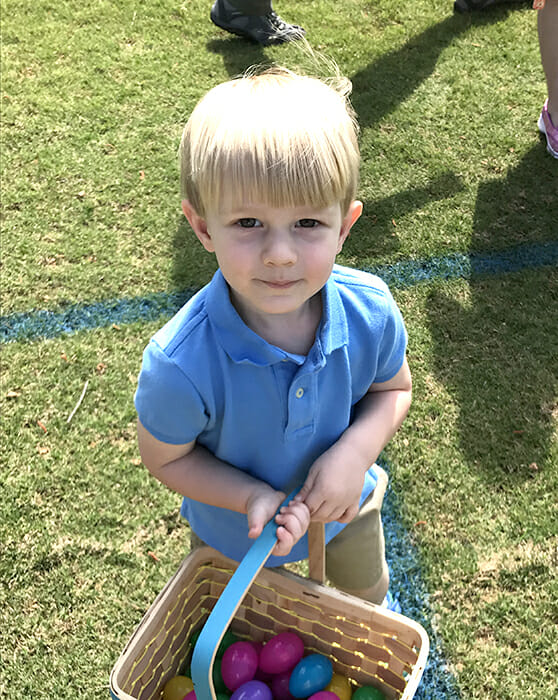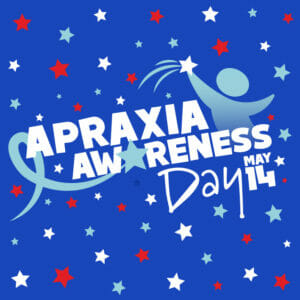Childhood apraxia of speech is a motor speech disorder – the child knows what he or she wants to say, but the brain is unable to move the body parts needed to say the sounds, syllables, and words needed for speech. This Sunday, May 14, is Apraxia Awareness Day, so we asked one of our Kid’s Creek moms to share her thoughts on apraxia and her child.

Apraxia has robbed my son of his voice. For more than a year.
My bright, funny, temperamental, imaginative two-year-old struggles to play with others, his siblings, his teachers, and even me. My son understands and comprehends everything about the world around him, but expressing himself verbally is a DAILY struggle.
He was born with apraxia, and didn’t babble much. The normal neural pathways of the brain that learn to physically make a sound, store the physical memory of how, and recreate the sound are incomplete for him. After months of trying he might manage to say “gah-gah” for grandmother but then after that breakthrough, it would be months before he could replicate it.
He is an expert nonverbal communicator. However, it is hard to get attention in appropriate ways as a two-year-old without a voice people can understand. Thanks to months of therapy with a talented, creative, and patient speech therapist starting at about 19 months old he has learned to make sentences. He can now make a “G” sound, although every day, each time with effort.
It is also hard for the parent in me to say, “use your words,” and watch the struggle and effort it requires for him. It is occasionally heartbreaking to watch him utter a string of excited syllables, meant to indicate a new imaginary game, come out incomprehensibly. However, I am lucky. I have two sons who struggled with apraxia. My oldest son is five and reached age appropriate speech at 3-1/2 after two years of speech therapy at Kid’s Creek. I know that the twice a week therapy sessions, all the work, practice and struggle at home will help. Someday he will be able to ask a new friend in the park, “Do you want to play pretend Star Wars with me?” and be understood.
Amanda E.
If you feel your child may have apraxia of speech or another childhood speech disorder, we invite you to contact Kid’s Creek Therapy for a free consultation.









